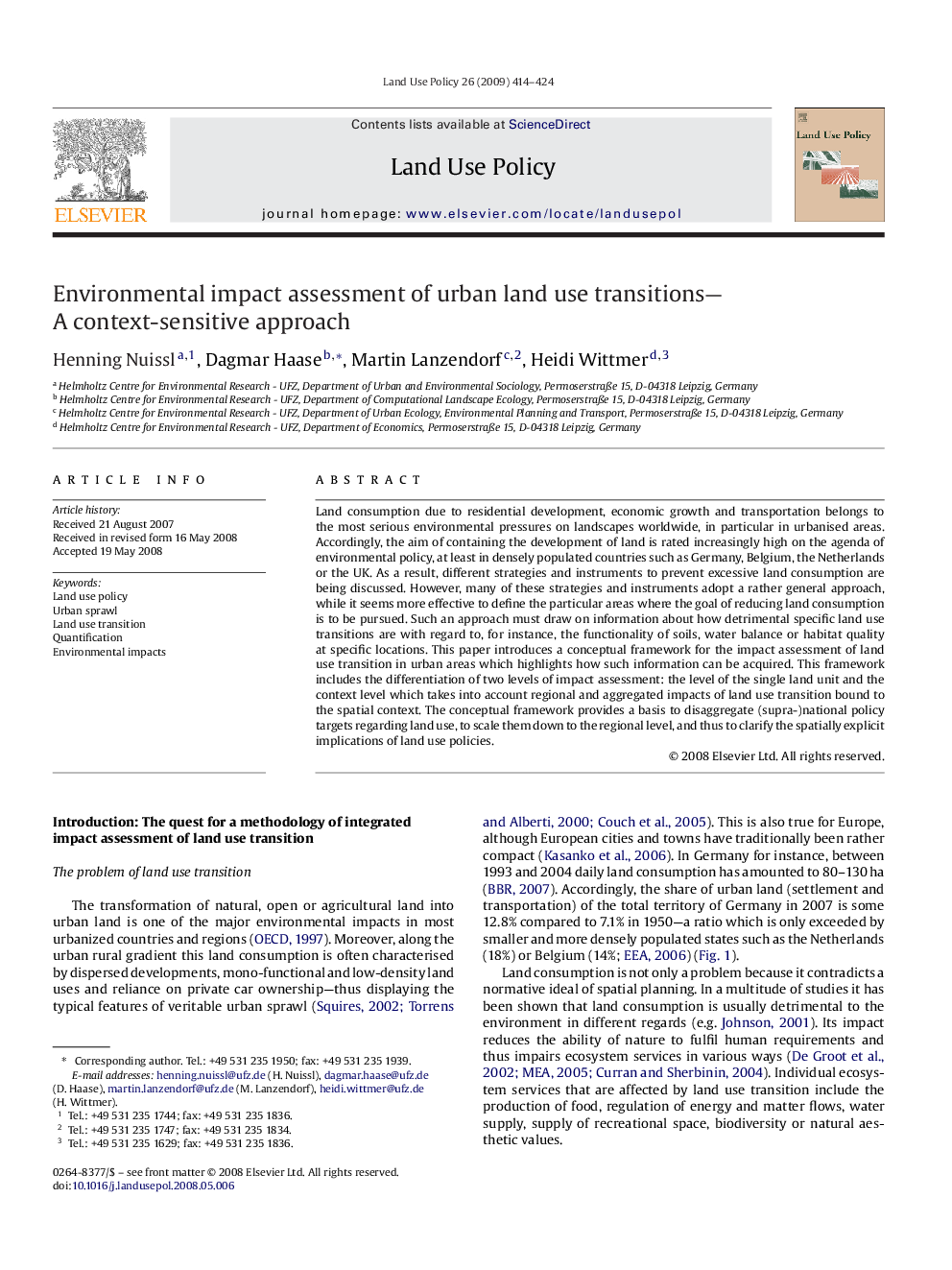| Article ID | Journal | Published Year | Pages | File Type |
|---|---|---|---|---|
| 93587 | Land Use Policy | 2009 | 11 Pages |
Land consumption due to residential development, economic growth and transportation belongs to the most serious environmental pressures on landscapes worldwide, in particular in urbanised areas. Accordingly, the aim of containing the development of land is rated increasingly high on the agenda of environmental policy, at least in densely populated countries such as Germany, Belgium, the Netherlands or the UK. As a result, different strategies and instruments to prevent excessive land consumption are being discussed. However, many of these strategies and instruments adopt a rather general approach, while it seems more effective to define the particular areas where the goal of reducing land consumption is to be pursued. Such an approach must draw on information about how detrimental specific land use transitions are with regard to, for instance, the functionality of soils, water balance or habitat quality at specific locations. This paper introduces a conceptual framework for the impact assessment of land use transition in urban areas which highlights how such information can be acquired. This framework includes the differentiation of two levels of impact assessment: the level of the single land unit and the context level which takes into account regional and aggregated impacts of land use transition bound to the spatial context. The conceptual framework provides a basis to disaggregate (supra-)national policy targets regarding land use, to scale them down to the regional level, and thus to clarify the spatially explicit implications of land use policies.
